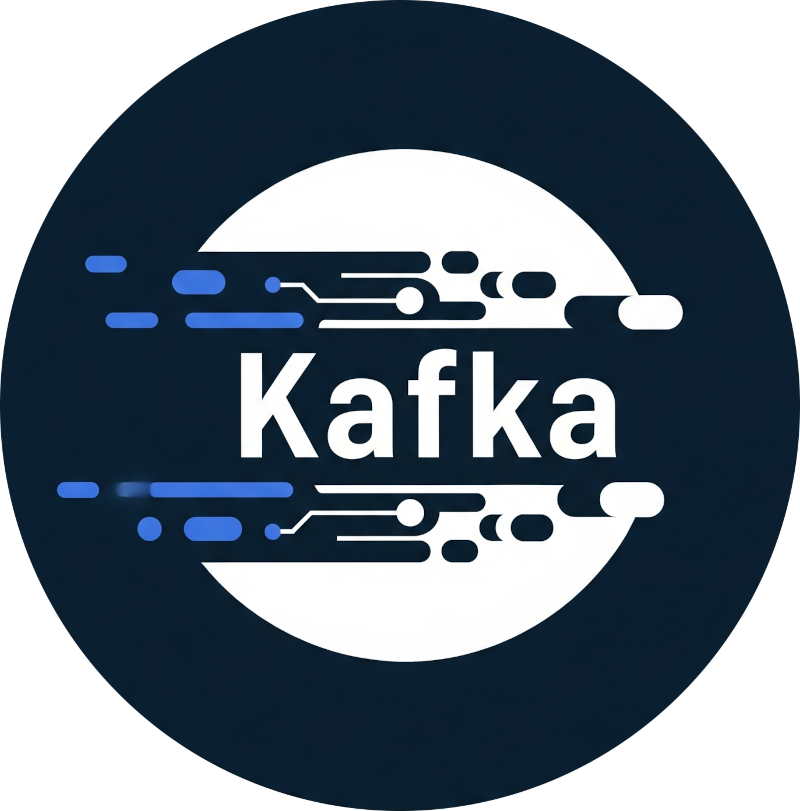AK-201

| Formats: | Asynchronous |
| Blended | |
| Online | |
| Onsite | |
| Part-time | |
| Level: | Intermediate |
| Prerequisites: | |
| Recommended Knowledge | |
| Strong Command Line / Linux Proficiency. | |
| Basic Programming Concepts. | |
| Understanding of Data Concepts. | |
Formats: We offer our training content in a flexible format to suit your needs. Contact Us if you wish to know if we can accommodate your unique requirements.
Level: We are happy to customize course content to suit your skill level and learning goals. Contact us for a customized learning path.
Apache Kafka for Data Streaming (AK-201)
Mastering Real-time Data Pipelines and Event-Driven Architectures
In today's fast-paced digital world, real-time data is critical for immediate insights, responsive applications, and agile business operations. From capturing IoT sensor data to processing financial transactions, the ability to stream, process, and react to events as they happen defines modern data architectures. Apache Kafka stands as the industry-standard distributed streaming platform that makes this possible, powering the data backbone of thousands of companies worldwide.
This Apache Kafka for Data Streaming course from Big Data Labs is meticulously designed to equip data engineers, software developers, and architects in South Africa with the practical skills needed to design, implement, and manage robust real-time data pipelines. Move beyond batch processing and unlock the full potential of your data with Kafka.
Target Audience
This course is ideal for technical professionals who need to build, manage, or work with real-time data systems:
Data Engineers & ETL Developers
Looking to build efficient and scalable data ingestion and processing pipelines.
Software Developers
Building event-driven microservices or real-time applications.
Solution Architects
Designing resilient and scalable data architectures for modern enterprises.
DevOps Engineers
Responsible for deploying, monitoring, and managing Kafka clusters.
Prerequisite Skills
To gain the most from this hands-on course, participants should have:
- Strong Command Line / Linux Proficiency: Comfort with terminal commands and basic shell scripting.
- Basic Programming Concepts: Familiarity with general programming logic; experience with Java or Python is advantageous but not strictly required for core Kafka understanding.
- Understanding of Data Concepts: Familiarity with data formats (e.g., JSON, CSV) and database fundamentals.
What One Will Learn (Learning Outcomes)
Upon completion of this course, you will be able to:
- Understand Kafka Architecture: Grasp the core components, their interactions, and the role of ZooKeeper/Kraft.
- Design Kafka Topics: Effectively plan topics, partitions, and replication factors for scalability and durability.
- Implement Kafka Producers & Consumers: Write code to send and receive messages reliably.
- Integrate Data with Kafka Connect: Utilise and configure connectors for seamless data ingestion and export.
- Build Real-time Processing Applications: Develop stream processing logic using Kafka Streams API or ksqlDB.
- Perform Basic Kafka Operations: Use command-line tools for administration and monitoring.
- Understand Kafka Deployment Concepts: Grasp principles for deploying and securing Kafka clusters on-premises or in the cloud.
Target Market
This course targets technology-driven companies and sectors in **South Africa** that require robust real-time data capabilities:
Financial Services
For fraud detection, real-time trading, and transaction processing.
Telecommunications
For network monitoring, customer experience management, and billing.
Logistics & Supply Chain
For real-time tracking, inventory management, and route optimisation.
IoT & Manufacturing
For processing sensor data, predictive maintenance, and operational insights.
E-commerce & Retail
For real-time recommendations, inventory updates, and customer activity tracking.
Course Outline: Apache Kafka for Data Streaming
This comprehensive course covers the essential components and advanced features of Apache Kafka, from core concepts to real-time stream processing.
Module 1: Introduction to Data Streaming & Kafka Fundamentals
- What is Data Streaming?
- Use Cases for Streaming Data (IoT, logs, real-time analytics, microservices).
- Introduction to Apache Kafka: History, architecture overview (Producers, Consumers, Brokers, Topics, Partitions, Replicas).
- Key Kafka Concepts: Durability, scalability, fault tolerance, high-throughput.
Module 2: Kafka Core Concepts in Depth
- Kafka Topics & Partitions: Understanding their role in scalability and parallelism.
- Kafka Producers: Sending messages, message keys, acknowledgements, serializers.
- Kafka Consumers & Consumer Groups: Reading messages, offsets, rebalancing.
- Brokers and Clusters: High availability, load balancing.
- ZooKeeper (or Kraft): Its role in Kafka.
Module 3: Setting Up and Managing Kafka (Conceptual & Basic Labs)
- Local Installation (for practical understanding).
- Kafka Command Line Tools: Creating topics, listing, producing, consuming.
- Introduction to Kafka Client APIs (Java/Python client basics - conceptual).
- Basic Kafka Cluster Operations: Starting/stopping, basic monitoring (conceptual).
Module 4: Kafka Connect for Data Integration
- What is Kafka Connect? Use cases for integrating with external systems.
- Source Connectors: Ingesting data into Kafka (e.g., JDBC, File - conceptual).
- Sink Connectors: Exporting data from Kafka (e.g., HDFS, S3, Elasticsearch - conceptual).
- Managing Connectors and their configurations.
Module 5: Kafka Streams API for Real-time Processing
- Introduction to Kafka Streams: Building stream processing applications directly on Kafka.
- Core Concepts: KStreams, KTables, Joins, Aggregations, Windowing.
- Developing Simple Kafka Streams Applications (conceptual examples).
Module 6: ksqlDB for Stream Processing
- Introduction to ksqlDB: SQL-like interface for Kafka Streams.
- Creating Streams and Tables from Kafka Topics.
- Real-time Querying and ETL with ksqlDB.
Module 7: Kafka Deployment & Operations (Overview)
- Deployment Strategies: On-premises vs. Cloud (managed services like Confluent Cloud, AWS MSK, Azure Event Hubs).
- Monitoring Kafka Clusters: Key metrics, tools (JMX, Prometheus/Grafana - conceptual).
- Security in Kafka: Authentication, authorization, encryption (conceptual overview).
Module 8: Advanced Topics & Use Cases
- Schema Registry (e.g., Avro, Protobuf) for data governance.
- Transactions in Kafka: Ensuring exactly-once processing semantics.
- Advanced Stream Processing Patterns.
- Real-world Case Studies for Kafka Adoption across various industries.